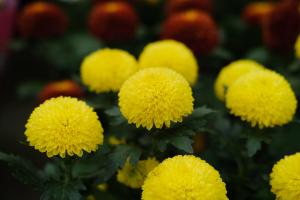Does Boiling Water Kill Plants?
Boiling water has many uses, from cooking food to making hot beverages. However, have you ever wondered if it can be used to kill plants? After all, boiling water is known to be a powerful tool for eliminating bacteria and other microorganisms that can harm human health. In this article, we will explore whether boiling water can also harm plants.
The Effects of Boiling Water on Plants
Boiling water can have different effects on plants depending on the size, type, and stage of growth. Generally speaking, pouring boiling water on the leaves or roots of most plants will cause damage, including wilting, yellowing, or even killing. This is because the high temperature of boiling water can scald the delicate tissues of plants and disrupt their cellular function. Moreover, boiling water can cause the soil to lose its texture and nutrients, leading to poor plant growth and development.
However, there are some instances where boiling water can be used to kill certain types of plants. For example, if you have stubborn weeds or invasive plants that you want to get rid of, pouring boiling water over them can be an effective and environmentally friendly method. Boiling water can penetrate the roots and kill the plant from the inside out, without leaving toxic residues or harming other plants in the area. Just be careful not to pour boiling water on plants you want to keep, and avoid using this method too often, as it can damage the soil and reduce its fertility.
Alternatives to Boiling Water for Plant Control
If you're looking for ways to control plants without causing harm or disrupting the natural balance, there are a few alternatives to boiling water that you can try.
One option is to use natural herbicides made from vinegar, salt, or soap. These substances can be mixed with water and sprayed on weeds to dry out their leaves and prevent them from photosynthesizing. However, be aware that these solutions can also harm surrounding plants and should be used sparingly.
Another option is to manually remove weeds and unwanted plants by digging them out or pulling them by hand. This method may take more time and effort, but it allows you to target specific plants and avoid damaging others. Plus, it can be a good form of exercise and stress relief!
Conclusion
In summary, boiling water can be an effective way to control some plants, such as weeds and invasive species, but it can also cause harm to most plants and the soil if used improperly. If you're unsure whether boiling water is safe for your plants, it's best to avoid using it altogether and explore other options. By being mindful and respectful of the natural environment, we can maintain healthy and beautiful gardens without sacrificing our planet's biodiversity.

 how many times do yo...
how many times do yo... how many planted tre...
how many planted tre... how many pine trees ...
how many pine trees ... how many pecan trees...
how many pecan trees... how many plants comp...
how many plants comp... how many plants can ...
how many plants can ... how many plants and ...
how many plants and ... how many pepper plan...
how many pepper plan...

































